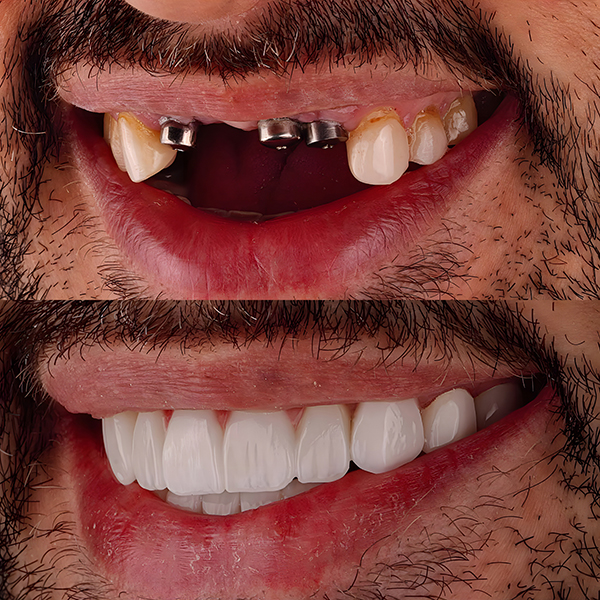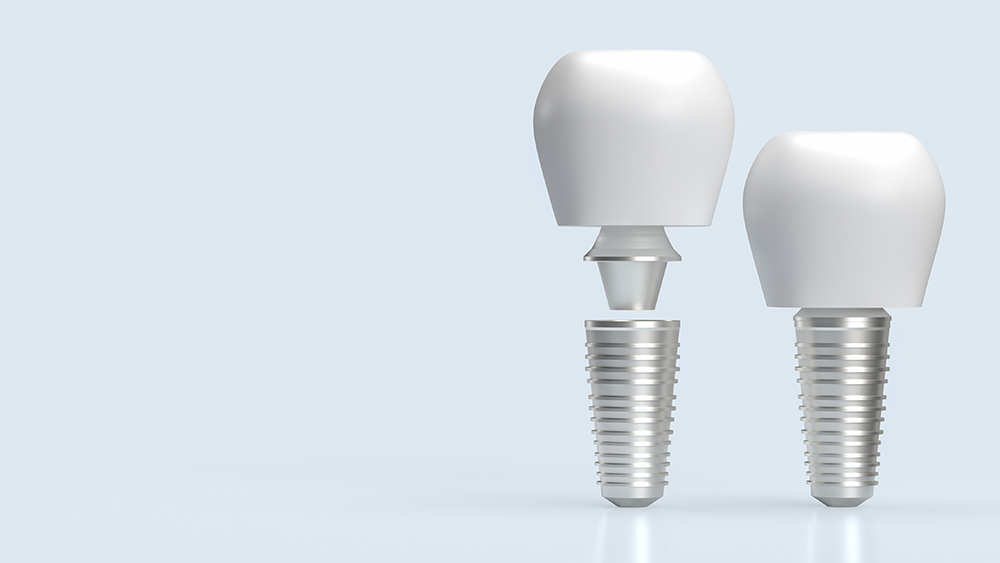If You Want to Get Implants for Your Teeth, Pay Attention to These!
The problem of missing teeth, which causes bad results in terms of aesthetic appearance and health, can be solved with a current treatment method, dental implants. An implant, which can be an alternative to crown or bridge prosthesis application, also prevents damage to other teeth. Smoking and poor oral hygiene, which negatively affect wound healing, reduce the success rate of the treatment and shorten the duration of the implant.
Implants imitate the root of tooth
Dental implants, which are frequently used and a current treatment method for missing teeth today, are titanium screws that are placed in the jawbone to replace missing teeth in the mouth and imitate the tooth root. With dental prostheses planned according to the patient on these screws, the place of the missing teeth is completed both functionally and aesthetically.
Adjacent teeth do not need to be reduced
Implant treatment is an alternative treatment method to crown or bridge prosthesis application. In this way, the missing tooth in the mouth can be completed without the need to reduce the adjacent teeth for the construction of bridge prostheses. In addition, fixed prostheses can be applied to patients who must use removable prostheses because they do not have enough supporting teeth. In patients who use removable prostheses but do not hold the prosthesis due to bone insufficiency, implants can be placed and connected to the prosthesis to increase the retention of the prosthesis.
Bone suitability for implant is checked
The general health status of the patient who will receive implant treatment is first evaluated and an intraoral examination is performed. After examining the patient’s expectations from the treatment and the suitability of the existing bone for the implant with three-dimensional radiographic images, it is decided how many implants will be applied and in what length and diameter. Aesthetic evaluations are also made and the most suitable superstructure is selected for the patient.
The procedure time varies depending on the number of implants
 Before the operation, if any, prescribed medications should be taken. Before the implant operation, which is a surgical procedure, only the area to be treated is numbed with local anesthesia and then holes are opened in the jawbone and implants are placed in these holes. At the end of the procedure, these holes are closed with stitches and the operation is concluded. While the duration of this procedure varies according to the number of implants to be applied, it takes approximately 10 minutes for each implant to be placed in the bone. The stitches are removed approximately one week after the operation and a control examination is performed. After the procedure, the use of antiseptic mouthwashes and good oral care help to accelerate the healing process.
Before the operation, if any, prescribed medications should be taken. Before the implant operation, which is a surgical procedure, only the area to be treated is numbed with local anesthesia and then holes are opened in the jawbone and implants are placed in these holes. At the end of the procedure, these holes are closed with stitches and the operation is concluded. While the duration of this procedure varies according to the number of implants to be applied, it takes approximately 10 minutes for each implant to be placed in the bone. The stitches are removed approximately one week after the operation and a control examination is performed. After the procedure, the use of antiseptic mouthwashes and good oral care help to accelerate the healing process.
Additional operations may extend the waiting time
The healing period for implant treatment varies from patient to patient. It takes an average of 3 months for the upper jaw and 2 months for the lower jaw to fuse with the bone. Additional procedures may extend the waiting period if the bone is thin or insufficiently high. However, the time required for the construction of the planned superstructure prostheses varies between one week and 10 days.
Cold compress can reduce swelling and pain
After the implant procedure, when the effect of anesthesia wears off, a small amount of swelling and pain may be experienced due to the surgical procedure. This can be controlled by applying cold compresses and using appropriate medication within the first 24 hours.
Implants are not applied to patients receiving chemotherapy and radiotherapy
Implant treatment can be applied to any patient who has completed their growth and development and whose general health is good. However, implant treatment is not appropriate for individuals who have an important systemic disease that is not under control, or who have received radiotherapy or chemotherapy in the recent period. For this reason, it is important for the dentist to know the health history of each patient who is considered for implantation.
Smoking reduces the success rate of implants
Many studies have proven that smoking prevents the implant from integrating with the bone. In individuals who smoke, the probability of implant failure is 2-3 times higher than normal. Especially after the procedure, that is, during recovery, smoking increases the risk of infection and delays wound healing.
Providing oral hygiene extends the life of the implant
The lifespan of implants depends on different factors. It is very important for the patient to pay attention to the necessary hygiene conditions for the implants to last longer. Brushing the teeth correctly, using dental floss and mouthwash for oral hygiene are among the indispensable parts of oral hygiene.
It should be performed by experienced physicians who are experts in their field
Patients who do not receive the expected benefit from implant treatment may experience physical, psychological and financial losses. For this reason, it is of great importance that the implant application is performed by a specialist and experienced physician.

